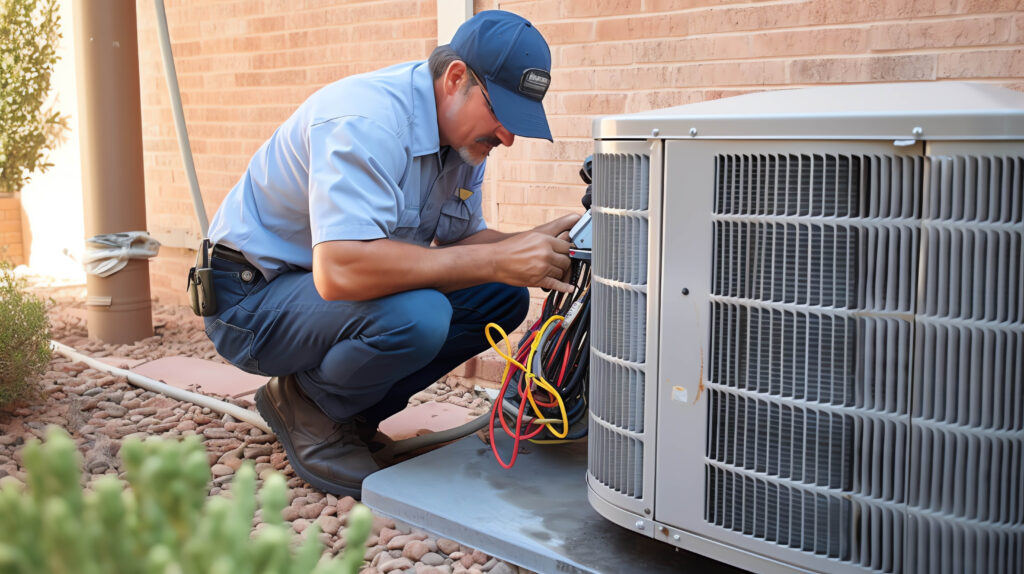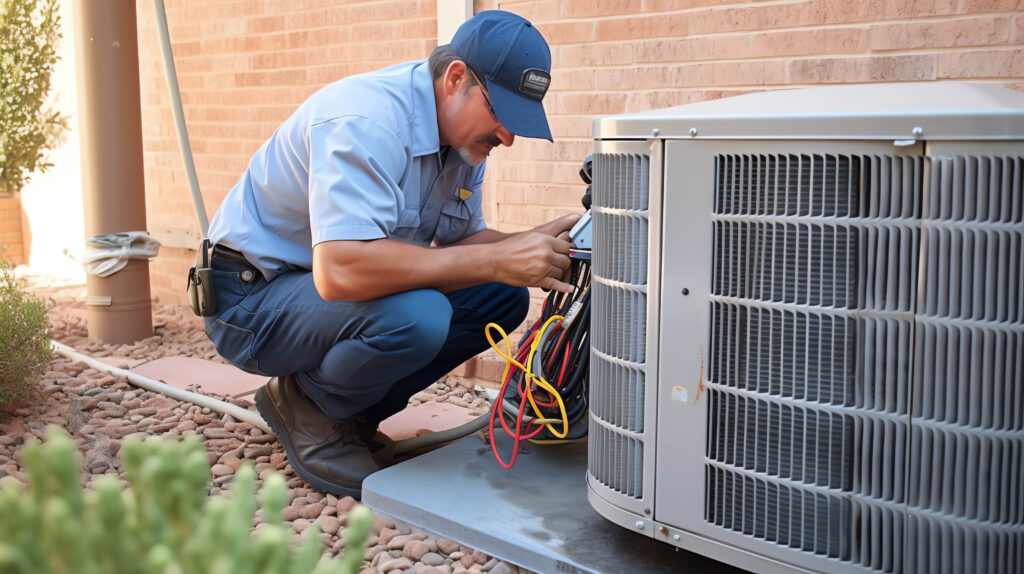- HVAC Repair Services
- Repair Service Deliverables
- Included Repair Services
- Frequently Asked Questions
- Get a Quote
Reliable Residential & Commercial HVAC Repair Services
HVAC repairs are essential for addressing malfunctions and inefficiencies in heating, ventilation, and air conditioning systems. Skilled technicians diagnose issues using advanced diagnostic tools, ensuring accurate identification of problems such as faulty electrical connections, refrigerant leaks, and malfunctioning blower motors. These repairs not only restore functionality but also enhance system efficiency and safety.

Effective HVAC repairs involve replacing worn-out components and fixing leaks to prevent further damage. Technicians employ industry best practices to ensure repairs are performed to the highest standards, extending the lifespan of HVAC systems. Regular repairs can also prevent minor issues from escalating into major, costly problems, saving homeowners and businesses from unexpected expenses.
By maintaining optimal system performance through timely repairs, HVAC services help ensure consistent indoor comfort and air quality. Whether dealing with uneven heating or cooling or more complex system failures, professional HVAC repair services are essential for maintaining the reliability and efficiency of heating and cooling equipment.
Repair Service Deliverables
HVAC repair services are crucial for addressing system malfunctions and inefficiencies, ensuring optimal performance and safety. The repair process involves several key milestones, including diagnosis, component replacement, and system testing. Skilled technicians use advanced diagnostic tools to identify issues such as faulty electrical connections, refrigerant leaks, and malfunctioning blower motors. Below is an overview of the major service milestones and the essential services involved in HVAC repairs.

Included Repair Services
HVAC repair services are vital for maintaining system efficiency and functionality. The repair process involves several key steps, from diagnosing issues to implementing preventive measures. Below is an overview of the essential services involved in the HVAC repair process.

Services in HVAC Repair Process
- Assessment and Diagnosis: Using diagnostic tools to identify the root causes of system issues.
- Component Replacement: Replacing faulty parts to restore functionality.
- Leak Repairs: Fixing refrigerant and air leaks to improve efficiency.
- System Testing: Ensuring the repaired system operates correctly.
- Calibration and Adjustment: Fine-tuning the system for optimal performance.
- Preventive Measures: Implementing strategies to prevent future issues.
- Final Inspection and Briefing: Conducting a final check and informing the customer about the repairs.
What are common signs that my HVAC system needs repair?
- Unusual noises, reduced airflow, inconsistent temperatures, and higher energy bills are common indicators that your system may need repair.
How often should I schedule maintenance to avoid repairs?
- It’s recommended to schedule HVAC maintenance twice a year, in the spring and fall, to keep the system running efficiently and prevent breakdowns.
Can I perform any HVAC repairs myself?
- While some minor tasks like changing filters can be done by homeowners, most HVAC repairs should be handled by professionals to ensure safety and effectiveness.
What should I do if my HVAC system stops working suddenly?
- Check the thermostat settings, circuit breakers, and filters. If the issue persists, contact a professional HVAC technician for a thorough diagnosis and repair.
How long does an HVAC repair typically take?
- The duration of an HVAC repair depends on the complexity of the issue but generally ranges from a few hours to a full day.
What types of HVAC issues can lead to emergency repairs?
- Complete system failures, refrigerant leaks, and electrical problems are common issues that may require emergency repair services.
Are HVAC repairs covered by a warranty?
- This depends on the warranty terms of your HVAC system and the parts replaced. Many new systems come with warranties that cover certain repairs for a specified period.
Get A Quote
Restore your HVAC system’s efficiency and comfort. Contact us today for a personalized quote on our expert repair services!
